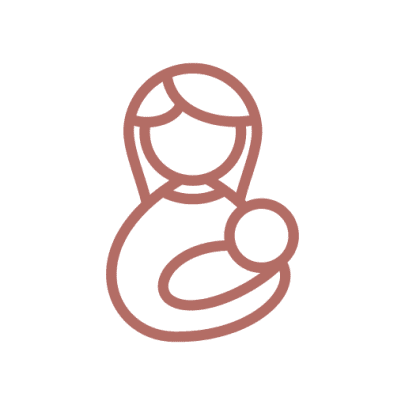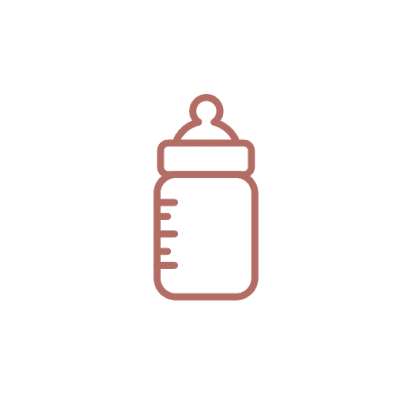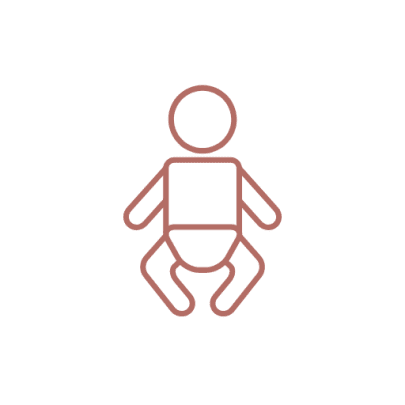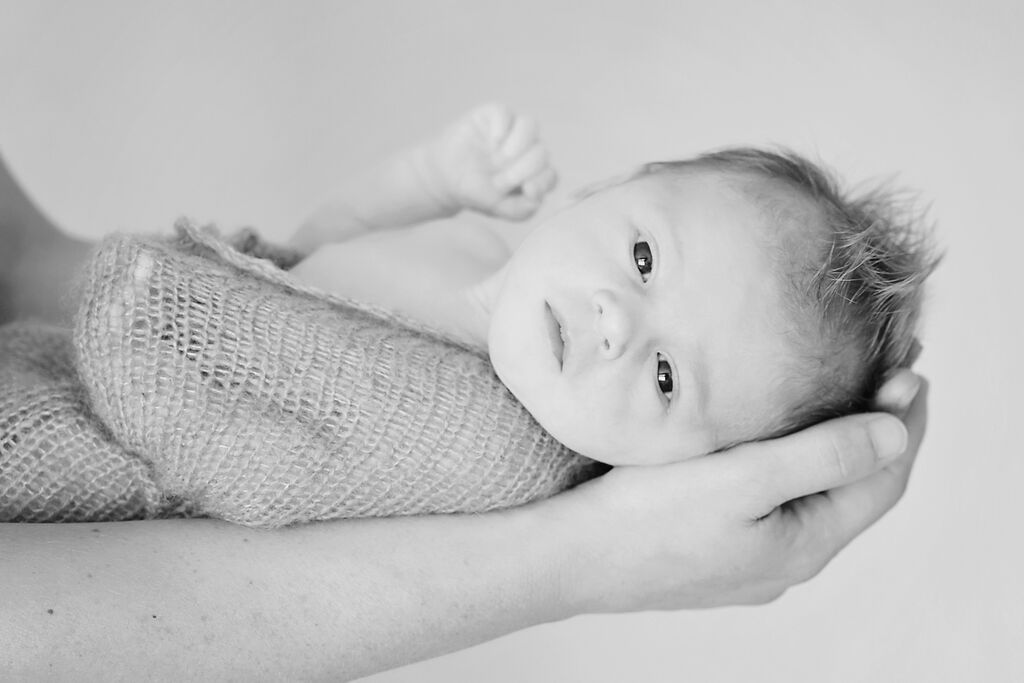When you picture a newborn baby, what image comes to mind? A beautiful, peaceful, precious little being all swaddled up and sleeping peacefully in his mother’s arms, or cooing adorably while you give her a gentle bubble bath? While those rose-tinted moments of newborn life do exist (and are pretty darn wonderful), most parents are unprepared for some of the less-mentioned characteristics that newborns can exhibit.
10 things nobody tells new mums about newborns.
1. Their skin isn’t perfect, and then it gets worse. From vernix (that waxy substance that coats their skin in the womb), to flaky cradle cap that you just want to pick at (DON’T), to red birth marks that gradually fade like stork bites on the backs of their necks, to blotchy patches as their circulatory system gets up to 100% capacity, newborn skin is not the dewy, perfect porcelain that we usually expect. And then just when it starts to come right, hormonal baby acne will start, and they’ll have red bumps and little zits on their poor faces. Don’t worry — it will get better. Eventually.
2. Newborns can look a bit funny at first. “My daughter was born vaginally and had a terrible cone head,” Kate remembers. “It looked so weird, I was afraid to take her hat off for three days after she was born!” Vaginal birth in particular can result in some squished-looking newborn features, but they will eventually smooth out. And if your baby seems a bit scrunched up, remember they spent nine months comfortably squished inside your body, so it’ll take a few days or weeks for them to start stretching out!
3. Their first poos are pretty horrifying. The first poo and sometimes a few subsequent poos are usually blackish and thick, like tar — this is meconium, and it’s just your baby’s system processing what was ingested during the time they were in the womb. Be warned: Meconium poos can be really hard to clean, and they can stain clothing!
4. Subsequent bowel movements are pretty weird too. Breastfed babies in particular can have seedy, yellowish, mustardy poos which look nothing like the breast milk they ingested. And don’t get us started on the wind! Newborn babies can pass gas with their whole bodies, squirming and scrunching their torsos while their faces redden and their eyes squint. Yikes.
5. They can be born with a pelt. Babies in utero develop fine hair on their bodies, called lanugo, which helps to keep them warm. They’ll shed some of it as they grow and by the time they’re born, particularly if they’re close to their due date, they usually won’t have much noticeable hair. But if they’re a little early, and sometimes even if they are born on time, they may still have some lanugo hair on their bodies — which can be a bit off-putting to new parents, who may be thinking, “Oh my God! My baby is hairy!” Don’t worry, this hair will wear off after a little while, and they’ll stop resembling a puppy.
6. Their hair (on their head) falls out/rubs off. Even babies who were born with a beautiful, full head of hair experience post-birth hair loss, and when they sleep or lay on their backs, they can rub the backs of their heads against the sheet or bouncinette and rub a bald patch on the back of their head. It may look ugly for a few months while their hair grows in, but don’t worry, it will grow back.
7. It can take aaaaaaages to wind them. When newborns drink milk, they often start out DESPERATELY hungry, and gulp their milk along with copious quantities of air. By the time the feed has finished and they’re sleepy and sated, that air is still rumbling around and ready to make them uncomfortable — unless you can wind (burp) them. And it can take a long, long time, many changes of position, and lots and lots of patting to get that wind out. Prepare to be in it for the long haul sometimes.
8. They can fall asleep while they’re eating. Newborn babies sleep an awful lot, and sometimes, they can even fall asleep right in the middle of a feed, leaving Mum with uncomfortably full breasts. Mums resort to all kinds of things to help their newborns stay awake to eat — ticking their feet, undressing them, mid-feed nappy changes, stroking their cheeks… Whatever it takes, you want that feed to be finished so your newborn is full.
9. Newborns sleep a lot, but not for very long. While newborns can sleep for 18 hours in the early days, they don’t generally sleep for more than a couple of hours at a time. It’s not until they a few months and even up to a year old that their bodies are able to process enough food to keep them sated and able to sleep for more than a few hours before needing to wake and eat. The adage “Sleep when the baby sleeps” is true — get as much as you can, as often as you can, so you don’t burn out on their short sleep cycle.
10. You can’t believe how much you love them. It can feel strange when you’re pregnant with this unknown person, not really having an idea of what they’ll be like and how you’ll relate to them once they’re born. But many parents report an immediate and visceral “rush” of feeling when meeting their newborn baby for the first time. And even if you didn’t feel this incredible surge of love right away, it will come — be kind to yourselves as you get to know one another. One day you’ll look at your baby and realise that you can’t imagine life without them!
Have a browse for the range of newborn products available at Breastmates – Newborn Baby Gear
This gorgeous image courtesy of Deanna Robinson Photography (www.deannarobinsonphotography.co.nz).









